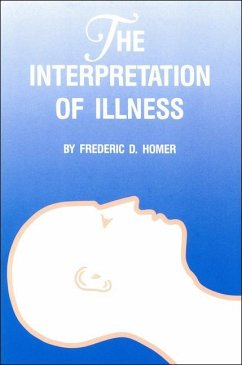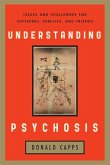Georg Groddeck (1866-1934), who was trained as a physician but became famous for his success as a healer, introduced a radical concept in that we virtually always cause our own illness and injury; therefore, we can cure and avoid both. He utilized the technique of psychoanalysis to communicate with the source of the illness. In The Interpretation of Illness, Homer goes beyond Groddeck's initial insight to emphasize that illness is a communication to others, especially a call for sympathy. No one consciously likes to be sick or hurt; but we all, consciously or unconsciously, tell others about our ills, expecting them to extend sympathy. Interpretation is a series of letters from Homer, writing under the persona "Augie," to a friend. Appropriately enough, this style is similar to the format used by Groddeck in The Book of the It.
Hinweis: Dieser Artikel kann nur an eine deutsche Lieferadresse ausgeliefert werden.
Hinweis: Dieser Artikel kann nur an eine deutsche Lieferadresse ausgeliefert werden.








